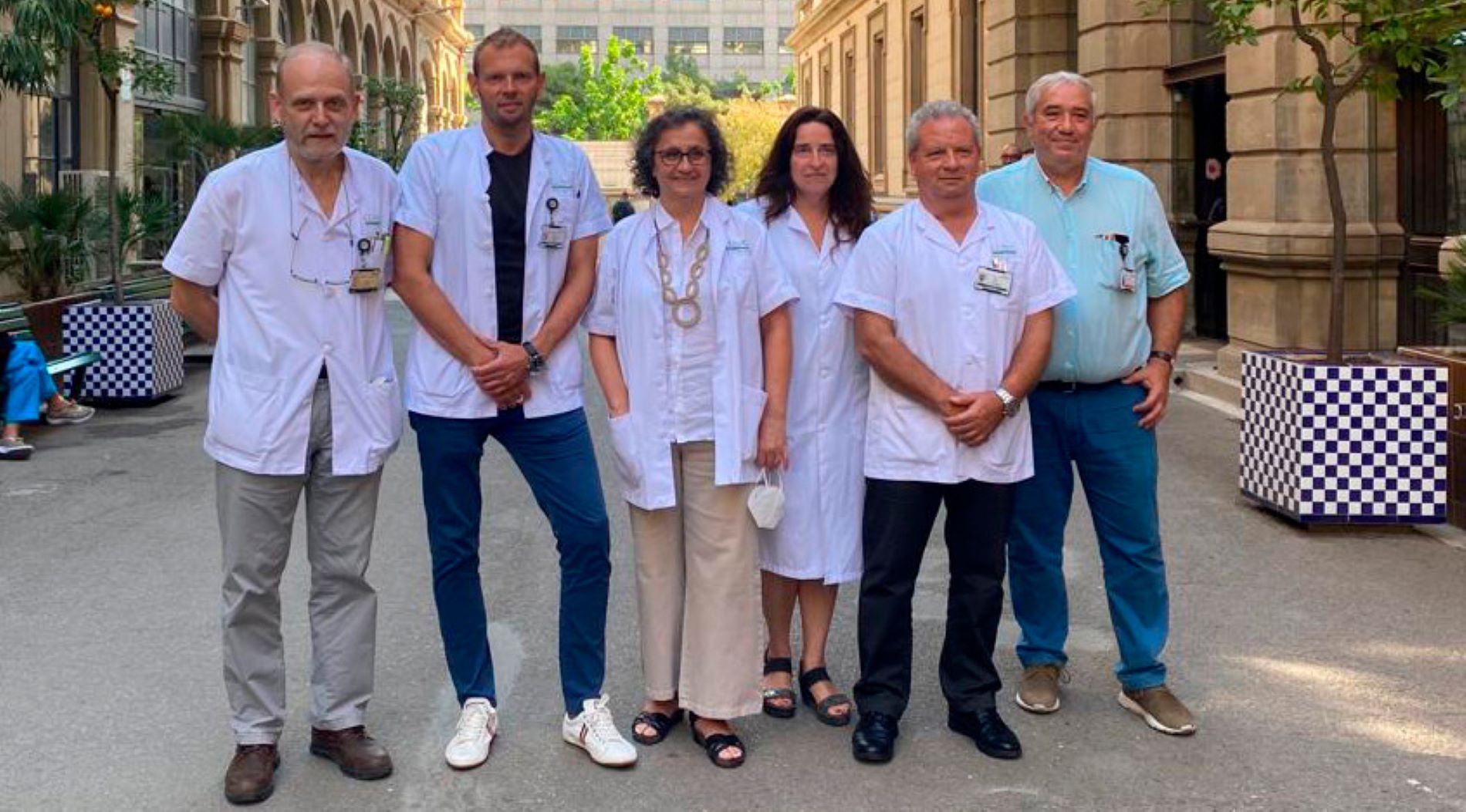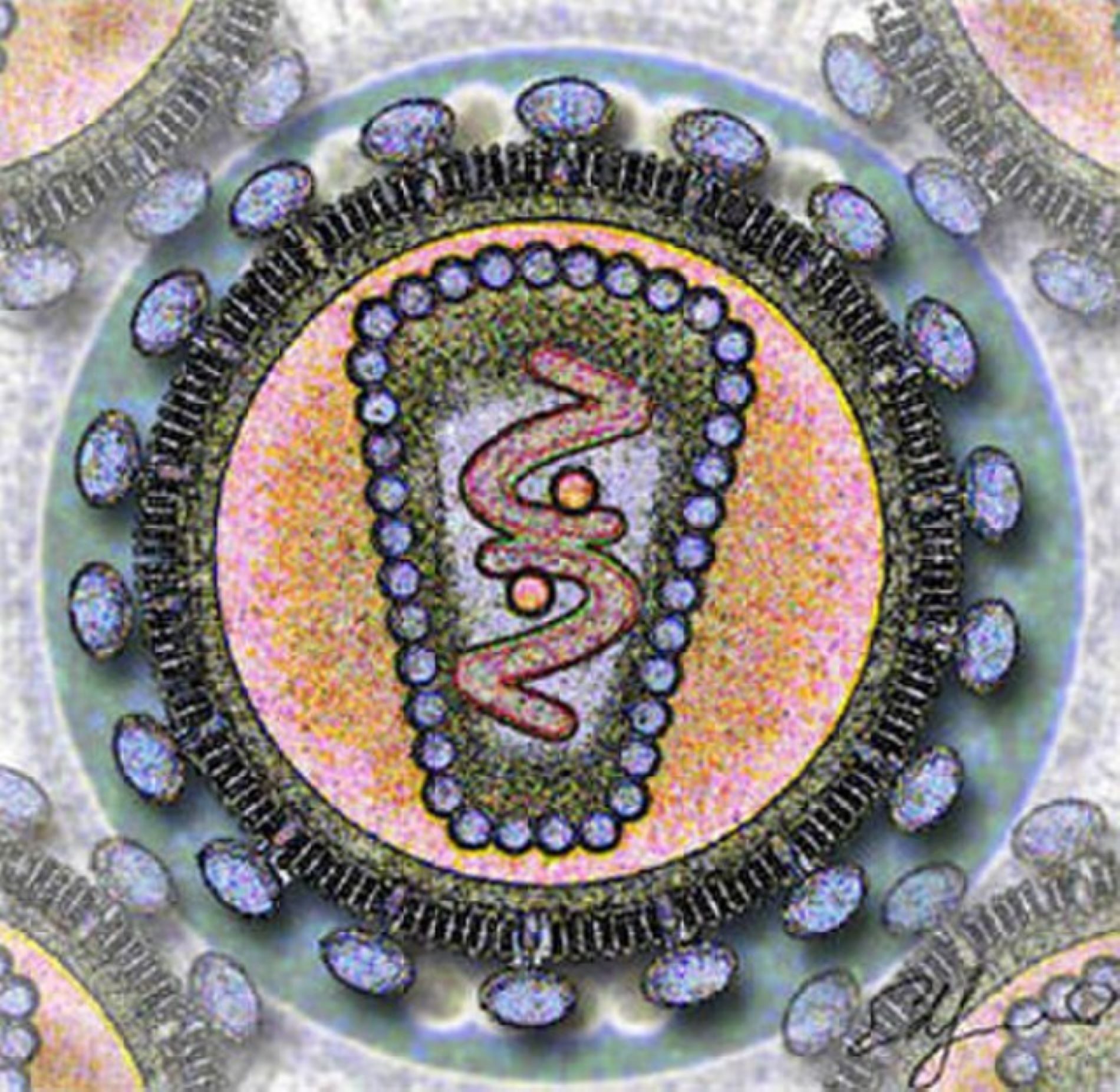A woman from Barcelona is a unique case of functional cure of the HIV virus. A patient of the city's Hospital Clínic who, after the suppression of antiretroviral treatment, has absolute control of HIV replication. She has maintained this control for more than fifteen years, with an undetectable viral load and without taking medication against the virus. The Clínic, one of Barcelona's major public hospitals, explained this in a press release after presenting the case at the World AIDS Conference 2022 in Montreal.
The Hospital Clínic recalls that acquired immunodeficiency syndrome (AIDS) is the most serious form of infection caused by the human immunodeficiency virus (HIV), although thanks to advances in treatment it has been possible to curb the disease and improve the quality of life of infected people. Antiretroviral treatment is effective in suppressing viral replication, but in almost all cases, HIV persists in reservoirs within the body and the virus resurges if therapy is interrupted. That is why the few people who maintain undetectable viral loads without taking medication have become a realistic model for functional care of HIV. They are known as "post-treatment controllers", although there are also so-called "elite controllers", cases where people have been cured of HIV in relation to bone marrow transplants, or in exceptional patients who have defective viruses or genetic factors associated with a strong immune response to HIV from one type of lymphocyte, the CD8+ T cells.
Thus, the Hospital Clínic-IDIBAPS research centre study describes the immunological mechanisms of a post-treatment controller that have given her absolute control of HIV replication for more than fifteen years. The patient was diagnosed in the acute stage of HIV infection and was included in a clinical trial with antiretroviral treatment for nine months and several immunomodulatory interventions with an immunosuppressant agent (cyclosporin A). Infectious diseases specialist and professor of Medicine at the University of Barcelona, Josep M. Miró, explained that "the patient did not have genetic factors associated with HIV control, she was not an elite controller of the disease and furthermore, she presented a severe primary infection, which is not common even in post-treatment controllers."
The woman was also found not to be infected by defective viruses, meaning her virus was viable because it was able to be isolated and cultured in the lab. HIV and AIDS researcher Sonsoles Sánchez-Palomino says that in the years since the patient's infection there has been "a pronounced and progressive drop in the number of viruses in the reservoir, which suggests that it is controlled by the immune response". Thus, the researchers saw that the patient's blood cells were highly resistant to being infected by the HIV virus in in vitro cultures. But her purified CD4+ T lymphocytes were susceptible to infection. Taken together, this suggests that other populations of blood cells were blocking the infection and may contribute to HIV control.

The team has shown that there is a strong inhibition of HIV promoted by two types of lymphocytes. On the one hand, natural killer cells, which are part of the innate immune system and constitute the first line of defence against different pathogens. On the other hand, CD8+ T cells, which play a key role in the defence of cells against viruses and bacteria. Researcher Núria Climent points out that "the great innovation of the work is that we have characterized the cells that achieve control of the virus". These two cell types are also responsible for what are called innate responses and are responsible for eliminating other cells. "The patient has very high levels of the two cell types that could block the virus or destroy the infected cells thus achieving a functional cure," adds Climent. HIV Unit doctor Juan Ambrosioni explains that "functional cure for HIV is a much more realistic goal on a large scale than a sterilizing cure, and for this reason it is so important to understand the underlying mechanisms."
HIV Unit head and UB medicine professor Josep Mallolas concludes that "the case presented is exceptional, not only because there are very few people with long-term post-treatment control, but also because of the HIV control mechanism, which is different from that described in elite controller patients and other cases documented so far." And this case opens the door to the development of new potential treatment strategies to increase the activity of the cells involved in the patient's innate response to the virus.

